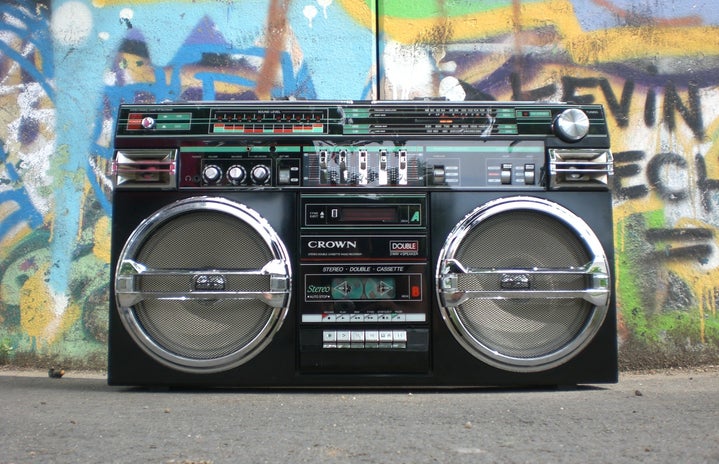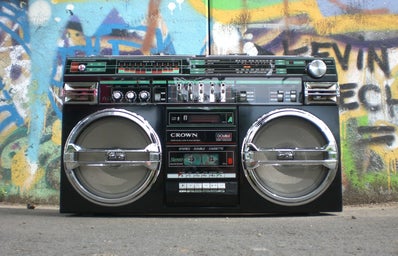In the early 2000’s, when my eldest brother was getting ready to go hang out with his friends, he’d apply the Sportin’ Waves pomade onto his waves, and with his wooden brush, he’d brush them forward. He’d then tie his bright orange durag onto his head, following his fitted hat. He’d put on a XXXL white T-shirt, paired with his light washed baggy jeans and staple beige Timberlands. Finally, he’d put in his diamond earrings, along with his long sterling silver chain around his neck as he confidently headed out the door.
It was the time when bling culture had suddenly emerged. Hip hop music had introduced new clothing and a fresh sound, fusing pop music into rap. Artists like Nelly, Lil Wayne, 50 Cent, P.Diddy, and DMX, were on the rise. Lowriders and jewelry became popularized to identify with the hip hop genre, putting emphasis on the idea of materialism. Rappers produced music that catered to the club scene, catchy beats, and fun lyrics that you could hear repeatedly and dance to them endlessly. However, it started to lose the true meaning of hip hop music; authenticity. Hip hop began as a method to bring awareness to Black issues, addressing the racial oppression and systemic discrimination they endured in the United States. It was a way to give underprivileged people a voice – to see representation of themselves in a society that constantly degraded them. Political hip hop challenged societal norms and was a reaction to the daily experiences of poverty, racism, violence, exclusion, and neglect in urban ghetto communities. Hip hop originally embodied and valued resilience, understanding, and overall social activism. It’s more than just a music genre – it’s resembles a lifestyle.
Conscious rap is a subgenre of hip hop that uses social expression to confront dominant political and economic consensus, referencing strong political messages and themes. Recognition is a major factor, as hip hop artists would exercise their own agencies to positively impact their visibilities. The “streets” is generally a significant place to hip hop artists because it’s where they construct their outlook on society, while learning how to navigate within it. Black people and hip hop intertwine with each other through the concept of rebellion. It’s the process of urban storytelling through rhythm, as they metaphorically connect themselves to their adversities. Tupac Shakur can be considered a revolutionary political hip hop artist. For example, in his iconic 1992 song “Changes,” he mentions the lack of progression in America and survival tactics of Black community. It mirrors the extreme means they are willing to go, whether legal or not, to outgrow their struggles and to live more comfortably; alongside the problem of police brutality.
One of my favourites is Nas’ “I Can,” (I memorized the entire song by the age of 5) where he talks to young Black children about believing in what they want to achieve when they’re older. That they can work in any profession by working hard and getting an education, not listening to the media that promotes make-believe lifestyles on television. Or Jay Z’s “The Story of O.J,” that discusses no matter how successful you are, at the end of the day you’ll always be perceived as a Black person.
Conscious hip hop is a form of protest that demands to be recognized through music that inevitably became universal. However, it’s a rare occasion nowadays to see rappers indulge in political rap because this generation has become so absorbed in materialism and public consumption. The lack of originality has become the dilemma of mainstream hip hop, seeking validation from international audiences. It’s saddening that the amount of radio plays a hip hop artist receives is more cherished than self-awareness.
I miss watching videos of my older brothers freestyling in high school, or the VHS tape where they freestyled in the middle of my complex when we lived in subsidized housing in our racialized neighbourhood. It reminds me that hip hop is undoubtedly an element of my Blackness. Nonetheless, being money-orientated will never equate to spirituality.



